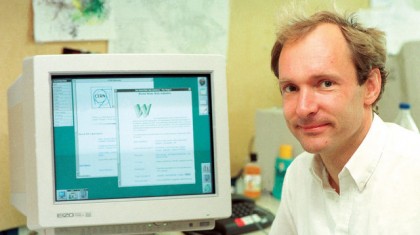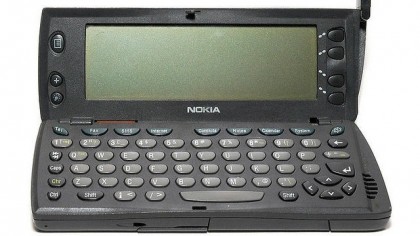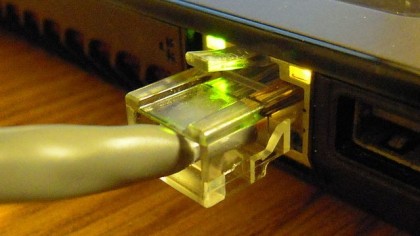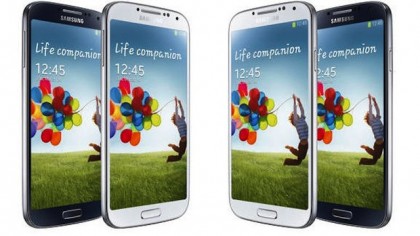25 years of the WWW: the key tech milestones that grew the web

At 2:56pm on 6 August, 1991, Tim Berners-Lee launched the very first website, setting in motion a chain of events that would change the connected world.
But it was a couple of years earlier, in March 1989 that he filed the proposal for what was to become the World Wide Web.
As Berners Lee himself says on the webat25.org site: "My boss dubbed it 'vague but exciting'. Luckily, he thought enough of the idea to allow me to quietly work on it on the side."
As Berners-Lee says, there are a few principles which allowed the web, as a platform, to support such growth. By design, the Web is universal, royalty-free, open and decentralised.
"Thousands of people worked together to build the early Web in an amazing, non-national spirit of collaboration; tens of thousands more invented the applications and services that make it so useful to us today, and there is still room for each one of us to create new things on and through the web."
1991 - the first website goes online
Although precursors to the internet (most notably the US Department of Defenses's ARPANET) have been around since the 1960s, the first website was put online in 1991.
Today, Berners-Lee says that "The web has changed the world in ways that I never could have imagined. There have been many exciting advances."
Sign up for breaking news, reviews, opinion, top tech deals, and more.
"It has generated billions of dollars in economic growth, turned data into the gold of the 21st century, unleashed innovation in education and healthcare, whittled away geographic and social boundaries, revolutionised the media, and forced a reinvention of politics in many countries by enabling constant two-way dialogue between the rulers and the ruled."

The site, built by Sir Tim Berners-Lee, the dude who had the idea to put HTTP and the domain-name system together to create the internet, was http://info.cern.ch. The dinky little web page was hosted on a NeXT computer in CERN, with a 25 MHz single-core processor.
1996 – First mobile web

The first 'mobile web' access was, somewhat surprisingly, in Finland in 1996. The Nokia Communicator 9000 was the device of choice – but it wasn't a communicator a la Star Trek. Rather, it was a heavy, slow device, with a whole 8MB of RAM. That's about two GIFs, in today's terms!
However, with incredibly high prices and speed that makes dial-up look like a drag racer, mobile web didn't take off until Japan in 1999, with an outdated standard called i-mode. Needless to say, no one really used it for anything bar checking the stock market.
1999–2004 – The era of WAP and GPRS
WAP, more properly known as Wireless Application Protocol, was the medium by which old phones could transmit data over the ancient 2G network.
That 2G network is what we know as GPRS. Essentially, WAP is like a toned-down version of the full-fat internet, and GPRS is like a toned-down version of dial-up. Yes, it's that slow. GPRS and WAP were the standard until 3G rolled in around 2005.
2003 – Wi-Fi takes over

Although mobile internet was slowly creeping into our lives, it was the standardisation of short-range wireless that made so much of modern technology possible.
The Wi-Fi standard was properly created with the founding of the Wi-Fi Alliance in 1999, which certifies and enforces the 802.11 wireless standard. With a common channel for everyone to play nice on, Wi-Fi quickly spread, until it was commonly found in routers and laptops from 2003 onwards.
Now Wi-Fi radios have shrunk to such an extent that a single chip inside a smartphone can connect to not only Wi-Fi, but also 3G and 4G, too.
2001 – Broadband rolls out

Of course, the web wouldn't be anything without broadband. Back in 1999, only one in five households had internet access – and for good reason. Dial-up was torturously slow, as anyone who's ever had a picture load row-by-row knows.
Broadband changed all that. With connection speeds actually managing to get over a megabit, web pages with text, pictures and even video became possible. As with all things tech, it's shrunk with time – broadband modems have gone from giant boxes to tiny circuits.
2003 - 2012 – Roll on 3G
The next major innovation in mobile web was 3G, which saw the first properly useful mobile data speeds.
3G was first introduced to the UK in 2003, with five major network operators rolling out 3G networks. However, despite the much faster data speeds – a theoretical 2 megabits per second – it took until 2009 for the majority of smartphones in use to be on the 3G bandwagon.
2012 – The year of 4G

After having rolled out in the US, last year the UK saw its first (long-awaited) 4G LTE network launched and all the major networks are currently deploying their systems.
There are already talks of 'advanced' 4G being rolled out in South Korea, with speeds upwards of 200Mbps – at that rate, you'd be able to download an HD video to your handset in less than a minute.
The future
Berners-Lee suggests there are several key questions we need to answer to take the web through the next phase of its history, around access, privacy and openness.
- How do we connect the nearly two-thirds of the planet who can't yet access the Web?
- Who has the right to collect and use our personal data, for what purpose and under what rules?
- How do we create a high-performance open architecture that will run on any device, rather than fall back into proprietary alternatives?
Whatever the future of the web ends up being, it's sure to be an exciting one.
Dan (Twitter, Google+) is TechRadar's Former Deputy Editor and is now in charge at our sister site T3.com. Covering all things computing, internet and mobile he's a seasoned regular at major tech shows such as CES, IFA and Mobile World Congress. Dan has also been a tech expert for many outlets including BBC Radio 4, 5Live and the World Service, The Sun and ITV News.